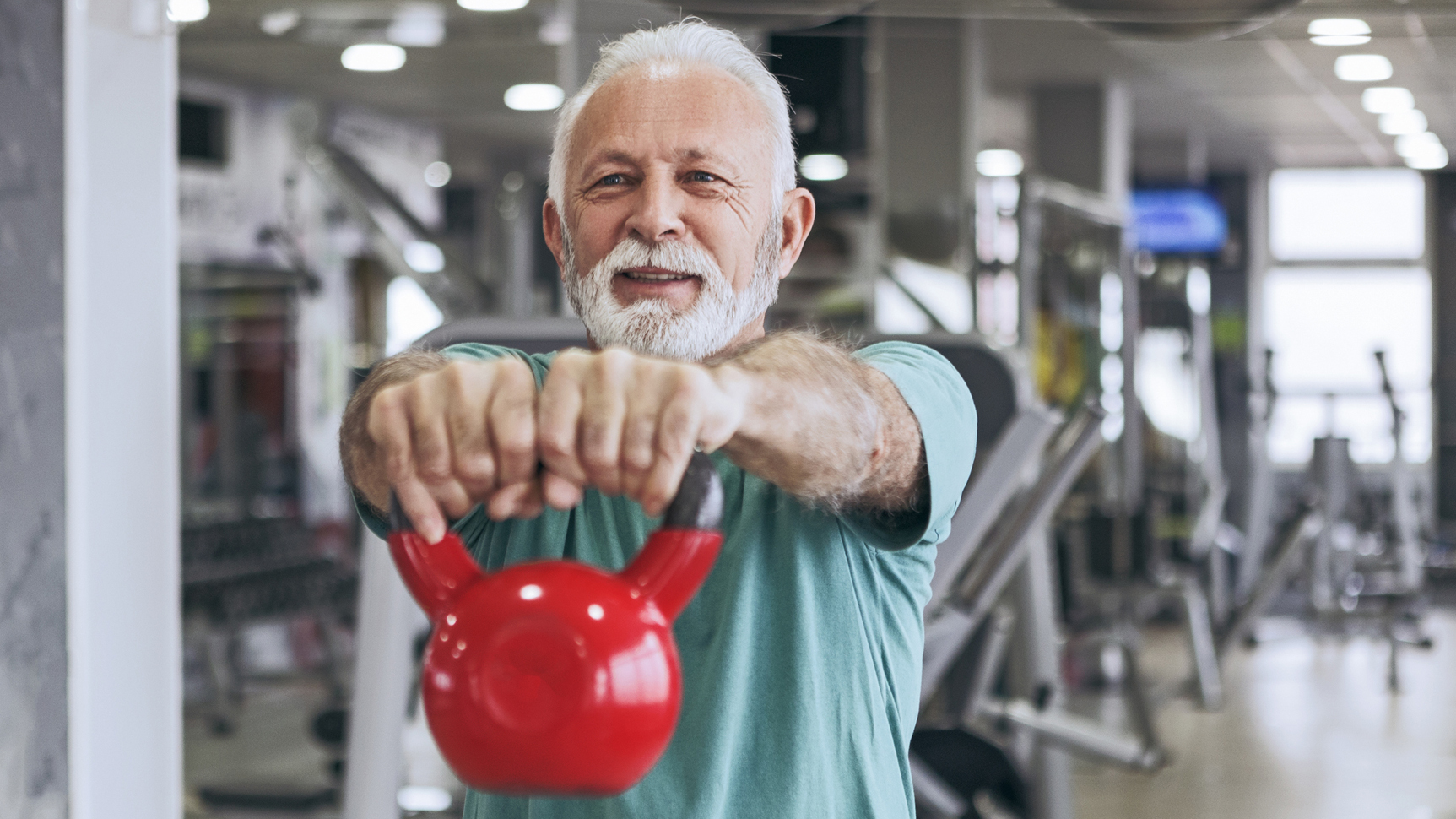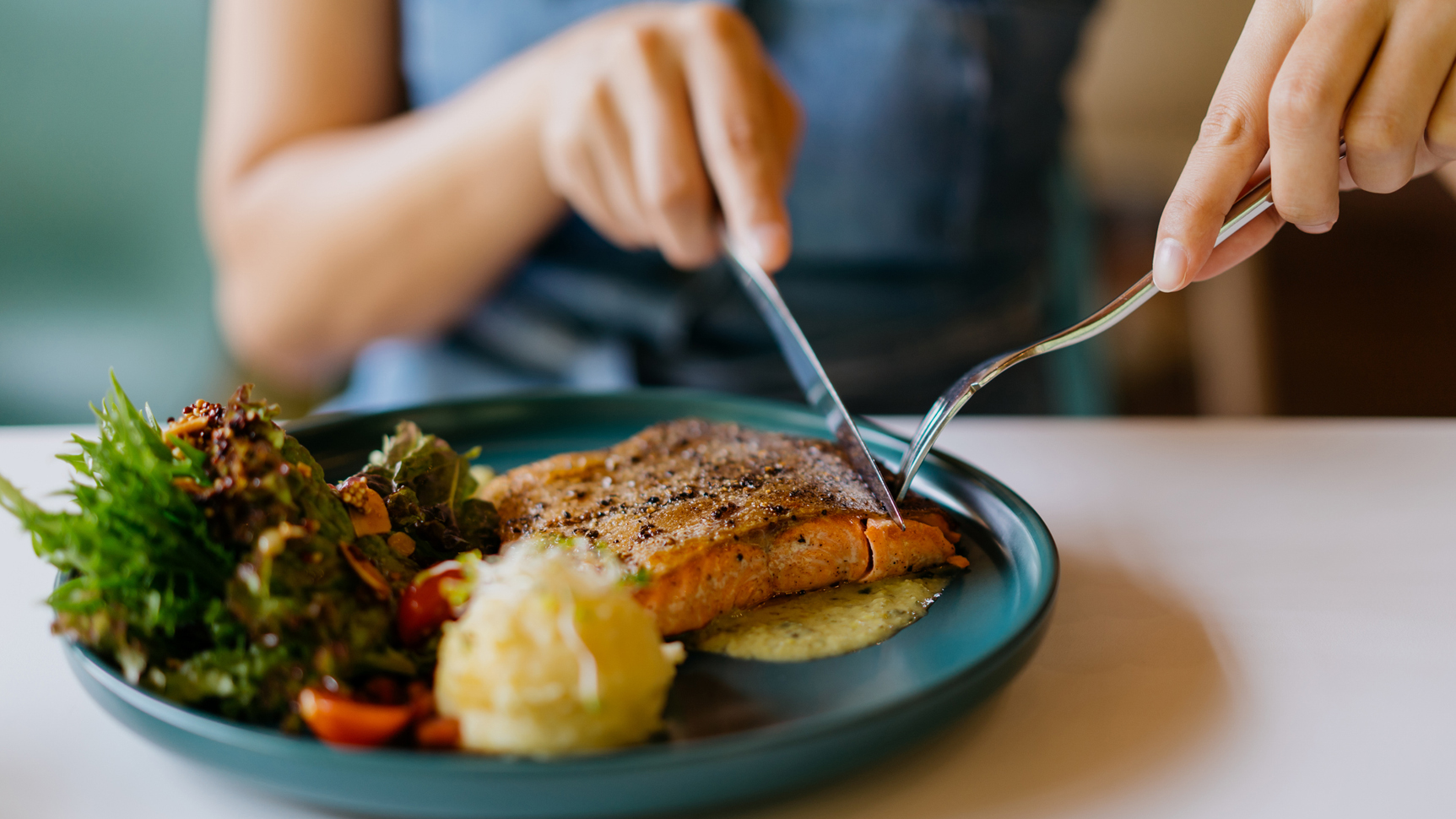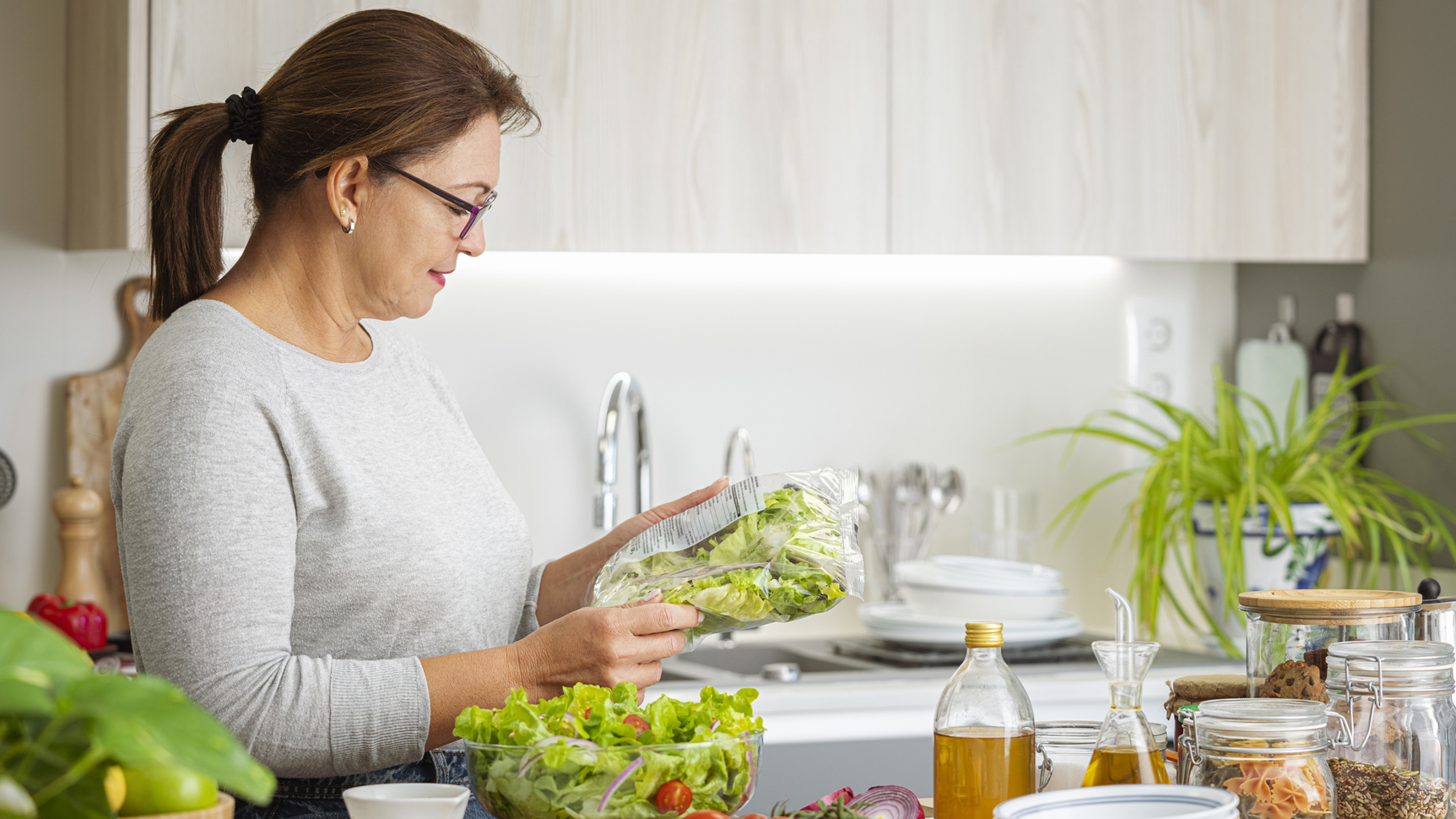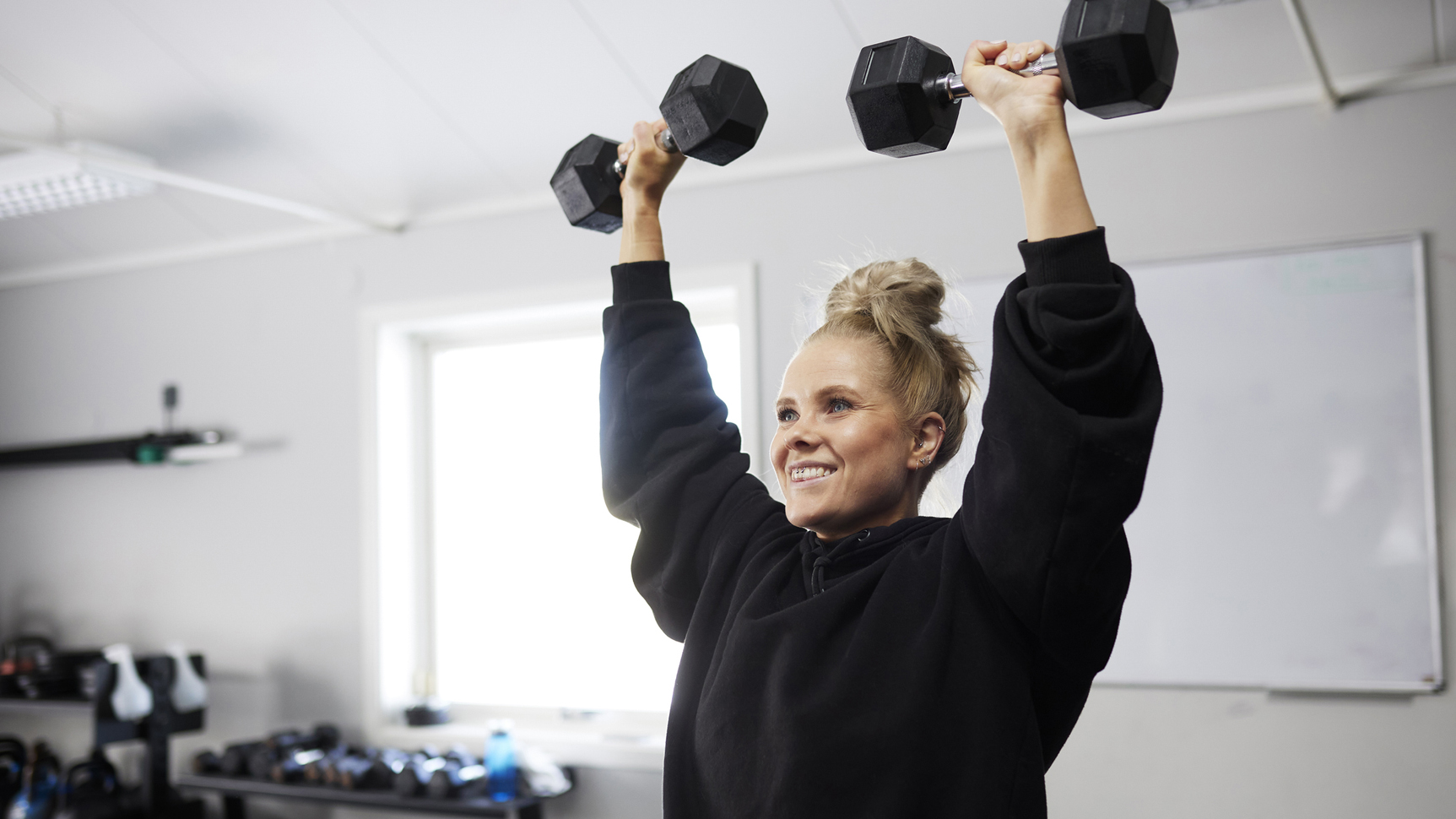
If you want to build a fit, functional body, then exercise is key. It can protect your heart and bolster your bone strength—and the team at Yakult says it can boost your gut health, too.
"Our gut microbiota is as unique as our fingerprint, with only 40% being the same as anyone else’s," says Yakult's Dr Emily Prpa, an award-winning nutritionist with a PhD in nutritional sciences. "Its role includes fermentation of non-digestible dietary fibre, synthesis of some vitamins—such as vitamin K and some B vitamins—and absorption of nutrients."
Staying active could help with the diversity of your gut microbiota, which Dr Prpa explains is a good thing: "It’s associated with better well-being and can help to regulate inflammation and support the immune system."
Exercise can also stimulate your digestive system and improve your mood, which has positive effects on your gut.
Not sure where to start with a new exercise regime? Here are some expert tips from health performance coach David Birtwistle, along with guidance on how to fuel your workouts from Dr Prpa. You can also read more on Yakult's Gut Active page.
Three workout tips for boosting gut health

1. Warm up
Birtwistle is here to remind you that a warm-up should never be missed. He says you should set aside roughly 10 minutes to raise your heart rate and ready your muscles with moves like the cat-cow, reach through, YTW and hip flexor lunges.
"This will help to prepare you mentally and physically, increasing your heart rate and therefore your blood flow to enable more oxygen to reach your muscles," he explains.

2. Build strength
All forms of exercise can be good for your gut, but Birtwistle says strength training is worthy of a special mention, as it could help reduce gut inflammation.
"If you’re including strength exercises as part of your routine, you should dedicate 15 minutes to it. Try exercises such as half-kneeling overhead presses with weights and a three-point dumbbell row. Repeat each move eight times across four sets, with small breaks in between."

3. Incorporate cardio
People tend to link cardio to running, but it simply means any activity that raises your heart rate and keeps it elevated for a while. So, if you don’t fancy pounding the pavement at pace, you could go for a cycle, swim or even a walk.
All forms of cardio have gut health perks, as physical activity increases blood flow to the muscles in the digestive system, which helps move food along the digestive tract.
"Bursts of 15 minutes of cardio can help raise your heart rate. If you’re at the gym, try short intervals of rowing, cycling or running. If you’re at home, you can do jogging on the spot, burpees or mountain climbers. These can all be modified depending on your fitness ability, so start small and build up over time."
How to fuel your workouts

1. Eat a complete meal before your workout
Yakult’s nutritionist and science manager, Dr Prpa, recommends eating a complete meal containing carbs, protein and fat roughly two to three hours before you exercise.
"Carbohydrates provide you with glucose—your body’s main energy source—helping fuel your body," she says. "Pairing carbs with protein before workouts can help improve performance and recovery."
You could opt for whole-grain cereal and milk topped with banana, whole-grain bread or crackers with nut butter and jam, or a smoothie with milk, banana, berries and protein powder.
If you are too busy and can’t find time to eat until 45 to 60-minutes before your session, try to choose foods that are easier to digest to prevent any stomach discomfort during your workout. For example, Greek yoghurt and berries or a piece of fruit.

2. Prioritise protein just after your workout
If you’re looking to have a main meal after your workout, make sure there’s some protein on your plate. This is because protein contains the nutrients your body needs to repair your muscles.
Dr Prpa suggests eggs, chicken or fish as top options for helping you hit your protein quota. Or, if you’re only in the market for a snack, try a handful of mixed nuts and dried fruit, Greek yoghurt with fruit and wholegrain cereals, or a type of nut butter on rice cakes.
Hydration is another factor to consider post-exercise, as you need to replace the fluids lost during your workout.
"Introduce water-rich fruits and vegetables as a post-workout snack such as watermelon, tomatoes, strawberries, oranges and cucumber. Your gut will love them too," says Dr Prpa.

3. Add more plant points to your diet
It should be news to nobody that fruit and vegetables are a worthy addition to your diet. At meal times, Dr Prpa encourages you to fill half your plate with salad or vegetables to keep your gut happy.
"A balanced diet is key to feeding the bacteria in the gut, so adding in foods that feed the gut microbiota can help support gut health, as well as give the body the nourishment it needs when it comes to physical activity."
She also preaches an attitude of "INclusion not EXclusion", encouraging people to think about what foods you can add to your diet to create diversity.
"For example, scatter nuts and seeds on top of your salads or in your soup, have your daily shot of Yakult and add a variety of colorful fruits and vegetables."
Gut health exercises to try

Looking for a quick workout, which could help your gut health? Try these exercises, suggested by Birtwistle. The strength and cardio moves will get your heart pumping, which increases blood flow to those muscles in your digestive tract. Just remember to warm-up first!
1. Half-kneeling overhead presses with weights
- Start in a kneeling position and bring your right leg out in front of you so that it is bent at a 90° position.
- On your left side, pick up a weight of your choice and ability and lift above your head. Do this four to eight times and then swap your leg and arm position. Repeat the exercise four times.
2. Three-point dumbbell row
- Stand next to a flat, stable surface that’s at roughly knee-height, like a weight bench or chair. Keeping your back flat, hinge at the waist and place your right hand on the surface for support.
- Hold a dumbbell in your left hand with your arm extended towards the floor, then drive your elbow towards the ceiling to bring the weight up to the bottom left side of your ribcage.
- Slowly lower it down until your arm is extended towards the floor again. Do this eight times, then repeat on the other side.
3. Burpees
- Start by standing upright, then squat down and place your hands shoulder-width apart on the ground in front of you.
- Kick both legs back so you’re in a high plank position, then jump back into a squat.
- Drive through your feet to stand back up and jump into the air. Land and repeat.
4. Mountain climbers
- Start in a plank position but with your pelvis slightly dipped towards the ground.
- Bring each leg up towards your body at alternative times, so that they cross over as you switch between the two.
For further information, please visit yakult.info/gut-active or find us on Facebook and Instagram.







